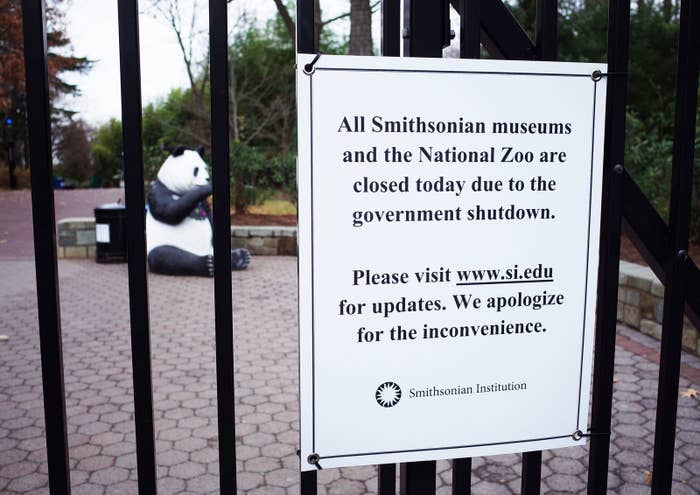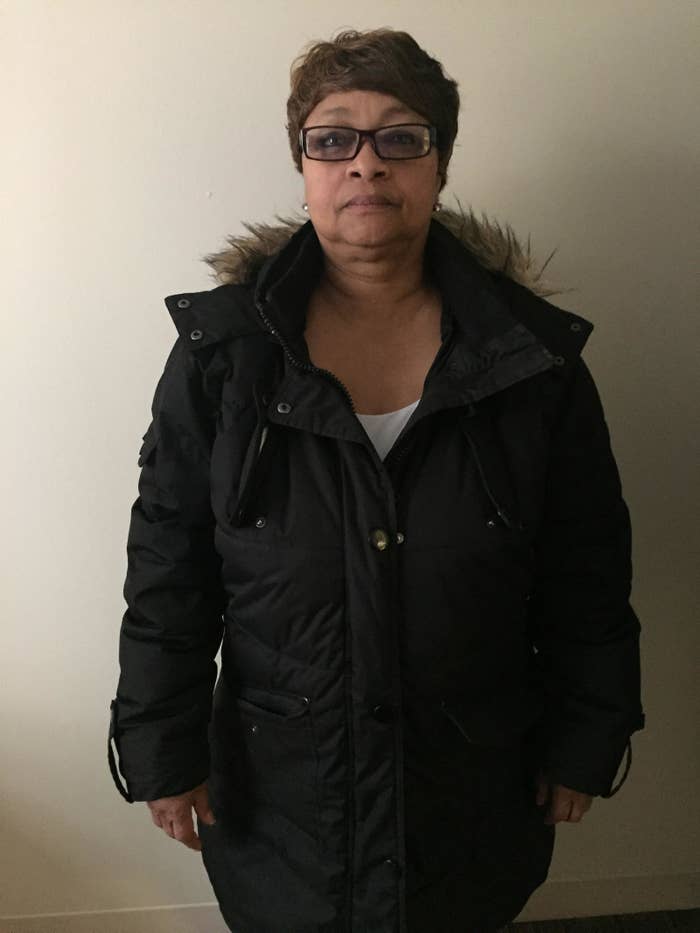
On Day 14 of the partial government shutdown, Donna Kelly, a 63-year-old federally subcontracted security officer for the Smithsonian, is wondering if her high blood pressure medication will last through the end of the month — let alone the entire shutdown.
When the government does reopen, Kelly and an estimated 1,500 workers — according to two unions that represent some of the janitors, security guards, cafeteria workers, and hospitality workers who staff federal facilities — likely won’t receive any back pay from the duration of the shutdown.
Government employees usually receive back pay once shutdowns have concluded, but workers who are paid by companies that have contracts with the government don’t receive pay for services that can’t be billed to the government while facilities are shut down.
“For workers who work for contractors, and who don’t work directly for the government, there’s no guarantee that they’ll be paid,” Lenore Friedlaender, assistant to the president of 32BJ SEIU, said in an interview. “In past shutdowns, there hasn’t always been money given to contractors to make them whole for what’s been lost. The increasing reality is that they have to be prepared for the fact that they may never get that money.”
The government has been partially shut down since Dec. 22 after President Donald Trump and congressional leaders couldn’t reach a funding agreement over Democrats’ refusal to agree to $5 billion in funding to build a wall along the country’s southern border. The House of Representatives passed legislation to fully fund the government Thursday, but the Senate won’t consider the bill, and Trump has said he’ll refuse to sign the House package because it doesn’t include funding for the border wall. Congressional leaders are meeting with Trump on Friday, but there’s no clear sign of a deal to end the shutdown, and the Senate has already left Washington for a three-day weekend that will last through Tuesday.
The Smithsonian was able to continue operating after the shutdown began using money from the previous year’s budget, but the institute’s museums closed their doors Jan. 2. Kelly told BuzzFeed News she received her last full paycheck Thursday, and she’ll get a smaller check in the coming weeks for the partial week she worked before the Smithsonian closed.

“My company said we have to sit back and wait to return to work. Right now it’s been two days since I’ve been out of work,” Kelly told BuzzFeed News on Thursday. “But the reality is we won’t receive any payment. If we’re not working we won’t be paid, and if it goes beyond two or three weeks, I don’t know how I’m going to pay any bills.”
Kelly, who receives subsidized housing assistance from Section 8, said that she’s worried about paying the utility bills for her apartment and explained that if she doesn’t, she could face eviction or lose her Section 8 voucher.
“My plan is to get up in the morning and apply for food stamps and apply for Medicaid — the coverage I had through the government ended at the end of the year,” Kelly explained. “They may reinstate my Medicaid, but I’m not sure, and I’m going to try to get a listing of food pantries. Those are my plans, and with the little finances I do have, I’m trying to sit back and figure out what’s the most important to pay and how they’ll work with me if I can’t pay it all.”
Unions like Unite Here and 32BJ SEIU said that they’ve heard from members who are concerned about rent and utilities. And they’ve heard from some members struggling between buying food and paying for prescription medicine, and that some are contemplating rationing or sharing medications, like insulin.
“This is going to turn into a dire situation shortly,” D. Taylor, the international president of Unite Here, said in an interview. “We’re dealing with people that are going to be faced with going to public assistance. They’re worried about rent, food, bill payments, and it’s not like our folks are living exorbitant lifestyles.”
“For these people, if you miss a paycheck or two it could mean eviction,” he added. “It all depends on whether a landlord is going to be sympathetic to the government being shut down, and you can’t buy groceries on an ‘IOU.’”
Pablo Lazaro, a 49-year-old cook at the National Museum of the American Indian, told BuzzFeed News that he’s also been out of work since Jan. 2 and that his company gave workers paperwork suggesting that they could use unemployment, sick days, and vacation days to cover lost time. Lazaro says that he’s working other part-time jobs and can afford rent this month, but if the shutdown continues, he’s worried about paying bills in the future.
“If this takes more than a month, I’m going to have to start applying for other jobs,” Lazaro said. “I live in Washington, DC, and the bills aren’t cheap here.”
Unite Here says it’s holding an emergency meeting for affected union members next week to determine how the union could be helpful and to help members sign up for public assistance if the shutdown continues.
Kelly says she hasn’t been able to see a doctor to discuss a plan if her high blood pressure medication lapses because she pays for health insurance out of pocket.
“There’s no way I can get around not taking that medicine,” Kelly said. “It’s a matter of life and death, and what can we do? If this thing continues, I won’t have money to pay for anything.”
“All I can do is pray that they open the government soon,” she added.
